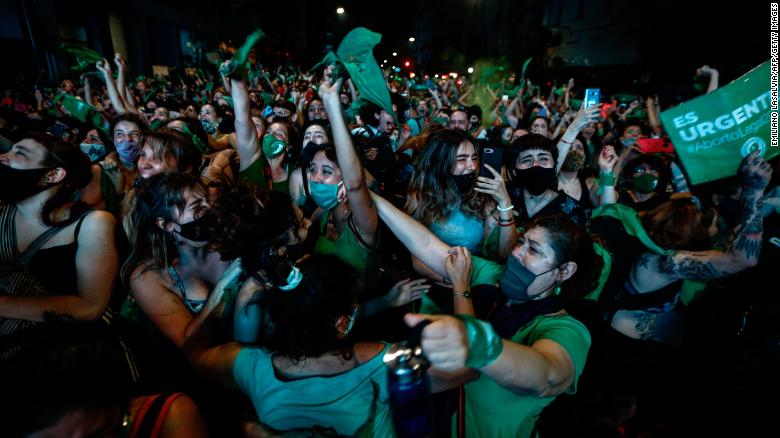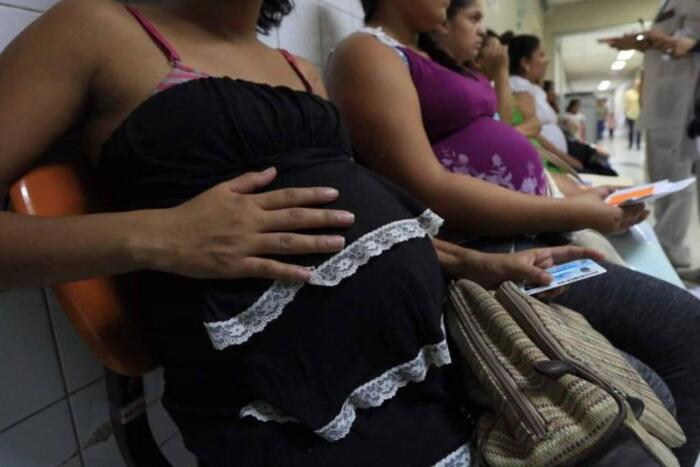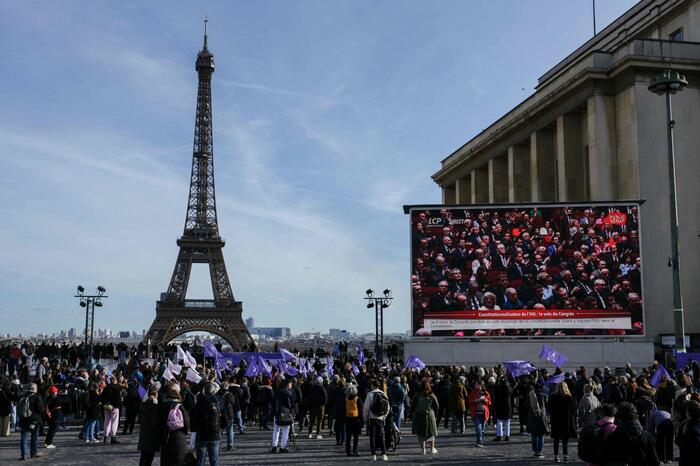Did you know that abortion was legal in the 19th century in the US?
1:51
Bogotá, Colombia (CNN) --
The prospect of the United States repealing decades of abortion rights -- something that materialized this week in a leaked draft opinion by Supreme Court Justice Samuel Alito -- sent shockwaves through many. countries in Latin America, where many feminist organizations have often seen the US as a model of greater reproductive rights and freedoms.
However, that model has turned around in recent years.
Just as several US states have established more barriers to abortion access through various restrictions, some Latin American countries have moved in the other direction, with a growing number of countries liberalizing such laws.
Expert says there will be a "brutal disparity" of rights in the US if the Roe vs.
Wade on abortion
Laura Gil, a gynecologist and abortion rights activist in Bogotá, Colombia, experienced this change firsthand.
“I remember that we met with health professionals in the US and for years they always looked at us with admiration for our fight to expand reproductive rights.
Now it's the opposite," she told CNN.
The doctor was in Florida for one of those meetings when news of the leak broke on Monday.
Her American colleagues were looked down upon, she said.
“They come from an environment where abortion is legal, whereas for us abortion used to be prohibited and now it is not,” she noted.
Gil was at the forefront of a year-long popular campaign to legalize abortion in Colombia, a movement that achieved its goal in February when the Constitutional Court ruled in favor of legalizing abortion up to 24 weeks of pregnancy.
advertising
Colombia's decision followed similar measures recently implemented in Mexico and Argentina, where abortion rights advocates who collectively demonstrated as the "green wave"—the movement's chosen color—celebrated their victories.
Argentina's Senate voted to legalize abortion up to 14 weeks in December 2020, making the country the largest nation in Latin America to legalize the practice at the time.
In September, Mexico's Supreme Court of Justice ruled unanimously that criminalizing abortion is unconstitutional, a decision that is expected to set a precedent for the legal status of abortion across the country, though individual states have moved at different rates in its implementation.
And just last month, after years of court battles, Ecuador took a first step toward liberalizing its laws by legalizing abortion for pregnancies that occurred as a result of rape up to 12 weeks.
A woman holds a banner reading "It's my body, I decide" in Saltillo, Mexico, after the country's Supreme Court ruled criminalizing abortion unconstitutional in September.
valuable lessons
Now that the tables appear to be changing, some Latin American activists say they can offer valuable lessons to their US counterparts in defending abortion rights.
Giselle Carino, an Argentine lawyer who participated in the campaign for legal abortion in her country, now serves as CEO of Fos Feminista, a feminist alliance of more than 170 organizations worldwide, based in New York.
"I look at Argentina with great pride, of course, because it was a truly democratic effort," Carino told CNN.
"It took us 20 years and we had many defeats. When we succeeded, it was because the mobilization was enormous: people talked about abortion at tables, in bars, in cafes, and at the same time we managed to put women in positions of power. We elected feminist representatives who would try to expand our struggle," she said.
"Those were the two lessons: make abortion a central issue and move forward through political victories, little by little," he added.
Abortion rights activists celebrate in Buenos Aires after the Argentine Senate approved a bill to legalize abortion up to 14 weeks in December 2020.
Carino points to Donald Trump's 2016 presidential victory as a turning point for abortion rights.
"This is his legacy because who put those justices on the Supreme Court? It's a legacy of authoritarianism and attacks on basic human rights. When you elect a leader like Trump, the damage is much deeper than four years in the power," he commented.
However, Carino considers that the annulment of Roe v.
Wade is far from a loser.
Instead, he sees it as a call to progressive activists to renew their fight for full reproductive rights and an opportunity to elect politicians who support those goals in the US midterm elections.
“America knows how to put people on the streets, look at Black Lives Matter.
This is the time to elect feminist leaders,” she said.
Despite the marked gains of the abortion rights movement in some Latin American countries, activists remain concerned about the fragile state of abortion rights in several countries in the region.
social justice
For a long time, society has been hostile towards women seeking abortion in Latin America, where the Catholic church remains a major influence, although the influence of Protestant churches is increasingly affecting policies in countries like Brazil.
In many Latin American countries, women face criminal prosecution and long jail sentences for the procedure and, in some countries, even for miscarriage.
In El Salvador, for example, Sara Rogel spent nearly 10 years in prison after being convicted of murder after losing her pregnancy in what she said was a fall at home when she was 22.
Activists in El Salvador demonstrate against gender-based violence and in favor of abortion rights in San Salvador in 2016.
Abortion rights activists fear that may be the reality for some US states in a few years.
“A great victory for the feminist struggle in Latin America is showing that abortion is a social justice issue,” says Luisa Kislinger, a Venezuelan abortion rights activist now living in the United States.
Venezuela only allows abortion when the pregnant person's life is at risk, with thousands of clandestine abortions performed in the country each year by people who cannot afford to travel abroad for the procedure, Kislinger told CNN.
Abortion rights in the US: how it compares to other countries in Latin America and the rest of the world
While it is difficult to collect data on illegal abortions, organizations like Faldas-R, a Caracas-based NGO that provides advice to people seeking to terminate their pregnancies, say more than 70% of people who seek their help live in poverty. .
“In Venezuela, abortion is effectively prohibited for poor women, and that often means black women, indigenous women, disabled women… these are all minorities,” Kislinger said.
"It's exactly what could happen in the US, because communities like African-Americans, Latinos or immigrants often don't have the resources to get an abortion (there too)," she said.
Data from the Guttmacher Institute, a research organization that supports abortion rights, supports this concern.
Abortion is "increasingly concentrated among low-income women," according to the group, which says "low-income women who lack abortion insurance coverage often struggle to come up with the money to pay for abortion." process".
"As a result, they often experience delays in obtaining an abortion or are forced to carry their unwanted pregnancy to term."
This fall, Latin American abortion rights activists will have all eyes on Brazil, where leading presidential candidate and former president Luiz Inácio Lula da Silva recently said everyone should be able to access an abortion.
Da Silva and current Brazilian President Jair Bolsonaro, who is a staunch opponent of legalizing abortion, are likely to go head-to-head in the October election.
The Brazilian Ministry of Health itself recognizes that the country is among the 25% of countries with the most restrictive abortion laws.
By the time Brazil chooses its path, in the US, federal abortion rights may well be a thing of the past.





/cloudfront-eu-central-1.images.arcpublishing.com/prisa/2BJPLFOPENCKDMK6PPADXUU37E.jpg)



